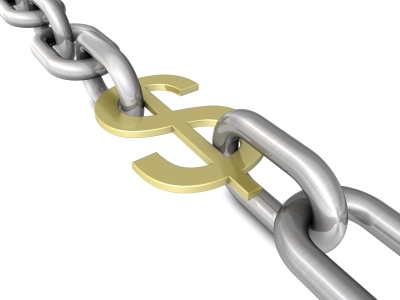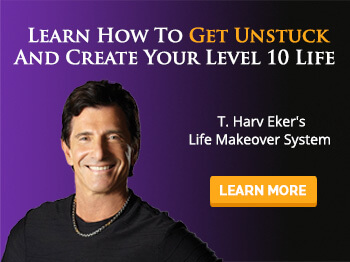By this point, we can talk for days about our money blueprint, yes?
It’s that program we created, or way of being that we’ve grown accustomed to, in relation to money—mostly without us being aware of it. Our money blueprint manifests our financial reality. Like the blueprint of a physical structure, it’s either going to be drawn up big or small—to accommodate a lot of money, or little.
That kind of blueprint is about the mental game of money, but let’s take a look at a different kind of blueprint—the one that encompasses the machine, the vehicle that will build your wealth—that is, your business.
A lot of people start their businesses without any blueprints. They say, “Well, I’ve got a couple of clients. Then I’ll figure out all the marketing stuff and get some more clients.”
That actually could work, but the downside of that kind of success—without a system in place that can handle the new volume—could lead to having so many customers that you literally don’t know what to do with them. You could end up losing as many potential repeat customers as you will the additional word-of-mouth customers those lost repeaters could have served up for you.
Designing a basic blueprint for your business allows you to get the lay of the land for your enterprise and understand how your business is organized. Maybe even more importantly, your business blueprint can show you those critical success factors that aren’t in your business. Enjoying the fruits of owning your business is much different when you can take a six-month vacation from it, yet it’s still running the way it should when you get back.
No matter what the business, there are four basic blocks that need to be included in the foundation of your business’ blueprint:
- Leadership. This is the part that provides vision, inspiration and makes most of those key, highest-level decisions about how things should be run.
- Business development. This is mostly marketing and sales. That’s where all the business comes from. These are the team members—and the processes in place—who find those prospects that want your product or service. Business development is where your promises are made and disseminated.
- Delivery. Once those promises are made, somebody’s got to do the work, yes? In manufacturing, those are the people who create the product. In other businesses, it’ll be those people who provide the service. Those are the fulfillment people, those who deliver on the promises.
- Administration. These are the often unheralded (don’t take them for granted, though!) people behind it all: accounting, legal, payroll, etc. It’s a separate yet very important group because that’s exactly where a lot of systems and processes often go awry.
Again, no matter what the business, every one of them is going to have these four essential components.
Similar to our psychological blueprints, what’s under the ground creates what’s above the ground. So many of the obstacles we come across in business can be tracked to structure and systems. As intensely as we work on the mind game of money, so to we need to pay special attention to the actual structure of our money making machine.
What do you think? We want to hear your comments and stories!!!
 What’s the root of all evil? Money, right? Wrong!
What’s the root of all evil? Money, right? Wrong!
You’d be amazed how many people think being rich will make their lives worse, like they won’t be judged for who they are but for their money. So even though they want to be rich, they shirk it at the same time.
This subtle yet profound fear keeps people from the truth: it’s good to be rich! Not just for the lifestyle, but because in the end, being rich makes us into better people.
I can hear someone screaming, “What about the rich jerk who doesn’t tip even though the service was great? How’s money made him a better person?” Here’s a clue: whoever you are, money will make you more of that. If you are a kind, generous person who attracted like-minded people before being rich, you’ll continue to do so after because now you’ll be able to be even more generous on a larger scale.
It’s our duty to become rich if we can. We have an obligation to grow to our greatest potential, developing the character that can achieve and care about other people at the same time. This is the growth that will ultimately make us into better people.
So what is the root of all evil? It’s not stacks of paper. Fear is at the root of our thoughts that tell us becoming rich will make things worse and take us away from being loved, accepted, and well-thought of.
If we don’t accept that being rich can be a good thing for ourselves and for others, fear and doubt creates envy. Envy says, “I can’t have that, and I resent those that do.” Acceptance of what you really want says, “I can have that, and I will be a better person because of it.”
So instead of secretly despising rich people, we should affirm them, even if they’re frickin jerks. We’re not affirming who they are as people—we’re affirming the idea that it’s okay to be rich. You can make a choice not to be selfish, arrogant, and thoughtless. Fear and envy negate thoughts of wealth and result in feelings and actions that take you away from it, even when you’re not aware of it.
Here’s a simple exercise in overcoming fear. Think of something that you’ve always wanted to do but never got around to, and just do it (Don’t break any laws, though!). Even if you end up not wanting to do it again, at least you know instead of just holding back for whatever reason. You’ve broken through something, and other breakthroughs become easier. It’s the only way we’ll ever grow.
This is not just about being rich, although that is one of the goals. This is about growing ourselves to become bigger than the obstacles we’ll face in life. The more wonder we experience and challenges we face, the more we expand to be able to take in more; the good and the bad; the money and the problems that come with it. In the end, striving toward becoming rich can only serve you, and if you choose it, serve others as well. How’s that a bad thing?
That’s got to sound ironic coming from someone who believes whole-heartedly in the benefits of being rich. Forget about getting out of debt, paying bills, buying nice things, etc. That stuff’s great, but at the end of it all you’re not going to give a damn about your credit rating. Money’s the last thing on your mind in that moment, I would imagine.
Money can reduce the stress of living, but it can bring just as much if not more anxiety. I’ve gone through my cycles of accumulating and losing money, getting more and losing it again. The money wasn’t burning a hole in my pocket. I just had a big hole in my pocket and didn’t bother to sew it up. That hole represented something in my mental blueprint that kept me from being stable with money. There was nothing wrong with the money.
On the other hand, people without money often think if they just had enough to do this or that, then things would be better. While that may be true, what happens when the mind goes into ‘Only if …’ consistently? That’s exactly what you get … ‘only if.’
‘This will only happen if…’
All of a sudden nothing’s happening and you don’t even know or remember that rule you created. In business that thinking often translates into “It takes money to make money.” No! If you have money it can certainly grow more money, but it doesn’t take money to make money. It takes creativity to make money.
Throwing money at a problem is disaster! In business there’s no such thing as a money problem. That problem grew out of somewhere else. You want to fix the root of the problem. If you throw money at a business problem, you’ll have the same business problem for the rest of your life and no money. Creativity and knowledge are the answers, not money.
It’s also not logical to blame money for people’s shortcomings, or the world’s for that matter. Obviously there are people that are rich and greedy, but there are poor people who are greedy and there are middle class people who are greedy. There are rich, poor, and middle-class people who are generous. There are rich, poor and average income people who can be both generous and greedy, depending on the stress they’re going through at any given time.
To say rich people are greedy as a blanket statement is just as unfair as saying poor people are lazy. I’ve met many a hard-working poor person who just hadn’t yet turned the corner on working smarter instead of just harder.
Money can’t be the root of all evil. Envy, jealousy, and greed—all based on fear of not having or getting enough of something we want—pre-dated currency (think about the story of Cain and Able). It’s a part of what it means for us to be human.
If money isn’t the cause of all that’s wrong, it’s not going to be the cure either. It’s not the answer. It’s the fruit of our expansion—or lack thereof—beyond ourselves and of the impact we’re having on the world. What we choose to do with that is a result of who we choose to be, not because of money.
Of all of the negative emotions we have to deal with, the most debilitating of them is anger. Anger sometimes runs and can often ruin lives.
I was angry at my dad for years. When I was a kid, I had this coin collection that I was really proud of, and I kept the coins in this piggy bank. My dad knew where I kept it as well, and one day it was just gone. My prized collection that—in my mind at least—I worked so hard for, just disappeared. Eventually, the piggy bank reappeared, but when I angrily accused my father of stealing … let’s just say he responded pretty angrily, too.
I thought of it as one of those things that ‘just happens,’ and you move on, yes?
Throughout my adult years I never re-examined that incident. I never considered his side of the story. My perspective was, ‘I’m right and that’s that!’ Fine and swell except for one problem: I unconsciously decided that men weren’t to be trusted with money or anything else. The anger and distrust was holding me back, not him. Think that had an effect on my long-term success and happiness?
Most of us are run by our past circumstances. We play the victim role based on an idea that it’s all our parents’ fault for how they raised us. ‘This is what happened, this is the conclusion, and now this is what I do.’
‘You want me to be a success? I’ll be a failure just to show you what a lousy parent you were!’
The most important thing to the conditioned mind is to be right. And when we’re angry, it’s usually about not getting what we want, and we feel justified in our position for the reason of the moment. So we retaliate by not giving the person that we’re angry with what they want. Meanwhile, we’re often going down the drain with or without them, true or true?
So … five different cities, 12 different businesses, 14 different jobs and 35 years later, I learned my dad was actually showing my prized coins to his poker buddies, and he didn’t want to confuse my coin collection with the poker pot so he just kind of stashed it away and forgot to put it back where I kept it. He was proud and protective, not a thief. Only when I became aware of why I wasn’t settled down—as a form of rebellion, anger and retaliation—I was able to make a new choice and build lasting success in life.
Anger and resentment only hurts you! You feel it, not whoever you’re angry at. It gets stuck in the cells of your body, not theirs. It makes you sick, not them. Even worse, sometimes that anger might actually be totally unwarranted, a simple misunderstanding. It’s not worth hanging on to.
Search your past for an emotional incident that resulted in your getting angry about something that concerned money and/or at least one other person. The idea is to simply re-look at a past or childhood situation from your current and (possibly) more mature point of view, and consider revising it so that it doesn’t haunt you anymore. What’s your story? We want to hear from you!
If you’ve ever related to another human being, you’ve probably experienced this.
You’re having a discussion with someone, and he or she says something you know as a matter of fact to be absolutely false. You can politely challenge this person’s inaccuracy, but most people don’t want to be wrong, and many others have a hard time admitting it. It’s human nature, our inner-fear mechanism adapted to today’s insecurities rather than the old “fight or flight” days. But depending on who you’re talking to, proving to somebody that they are wrong can get awkward if the people involved take it too personally.
Even when all evidence points to them being wrong, some people will stubbornly hang on to their views because they’d rather be right and comfortable in being wrong rather than risk the discomfort of having to assimilate new information into their worldview.
As a matter of fact, the people who are the most righteous are usually the most miserable people on this earth anyway, aren’t they? The ones who always have to be right are usually just taking their insecurities and unhappiness out on others, yes or yes?
Being right doesn’t always mean being happy, but if we’re happy it doesn’t really matter who’s right or wrong. Being right isn’t as important a consideration when you’re secure and focused. The only thing that’s important is: will the experience move me toward a result that I believe will support my happiness? That will mean being wrong sometimes, but we have to experience this in order to learn how to get it right, and then get happier.
Be right or be happy. Now replace the word “rich” with “happy.” Does that change the meaning of the phrase any? Not one bit! You can be right or you can be rich; it’s still a choice. Being right could mean holding on to old ways that aren’t supportive of being rich; unconscious blueprints, programming and conditioning that links negative thoughts to money. The more you decide that you want to be right, the more you’ve decided that you can pretty well kiss away being rich, not just financially but emotionally, spiritually, and mentally too. You can be right or you can be rich.
Money is a really blessed thing, and if you have the where-with-all to be able to earn or have a lot of it, you have an advantage over a situation; a gift, talent, skill or way of being that is actually a little different than most people out there. At that point, who needs to be right?!? The quality of your life is all the proof you need.
That doesn’t mean compromising your good sense to someone because of their inflexibility, but happy people don’t need to prove anything. They figured out that along the way, you have to be wrong at least occasionally in order to learn how to get it right. I’d rather be wrong and learn something that will benefit me later than “right” and learn nothing—and maybe get someone PO’d at me for being a smart-ass!
Do you have any stories of something that seemed like a disaster but actually turned out to be one of the greatest gifts you’ve ever received? An occasion where you were actually glad that you were wrong? We want to hear from you!
In tough times like these, people are doing more than just making economic and lifestyle adjustments that aren’t always chosen or even wanted. People just do what they have to do.
With these outward changes, though, I believe it’s more important than ever to reexamine our attitudes and beliefs. For those who have been in the Millionaire Mind community for some time, you’re familiar with how blueprint impacts our mental, emotional lives, and economic lives.
We all have our own mental ‘File Box.’ It labels and stores information, yes? Certain ways of thinking and belief systems? The way you think can only come from the information in those files. If it’s not in the file box, you don’t think it.
Unfortunately most of us have file folders that have mixed messages in it. Mixed messages create mixed results. So if you believe that you don’t have the experience to start your own business even though you want to, you’ll act accordingly and never have the experience of starting your own business. If you don’t believe that you have enough money to manage, you won’t manage your money, which means you’ll never have enough money to manage.
When you don’t periodically challenge your own beliefs, it’s kind of like driving with your foot on the gas pedal and on the brake at the same time. We’ve got mixed messages going out to the universe and to ourselves. We believe we want to get to where we say we want to go, yet some of our other beliefs hold us back.
We’ve got to revise some of those files or add some new ones so we can make new choices that seem perfectly logical and sensible toward what we want; files that support happiness and success versus those that don’t. We want to delete those files or at least neutralize them.
Whether you are naturally pessimistic or just facing uncertainty due to the current economic climate, develop the skill of challenging your negative, unconscious beliefs. However, instead of looking only at your beliefs, first look at your results and your ways of being! Look at your life and that will tell you what you MUST believe for those result to be there.
Describe your current life situation in the financial and work arena. Do you work for others, yourself, or not at all? Do you earn a lot of money, a little money, or a moderate amount of money? Where do you put your money if you have some? Are you a saver or a spender? Are you a risk taker or not? Do you love what you do or not?
Regardless of what you find, the truth is our lives are the way they are not just from circumstances we can’t control, but also because of that one area we can control though we don’t always take the time to do so: our belief system. We always act or not act in accordance with our beliefs. We co-share the results of this with the universe. Control what you can, and let the rest take care of itself.
Now it’s your turn. What are some of the things you’ve discovered about your belief system that may have surprised you? How long have you held on to these beliefs? How are you actively editing or deleting old, unsupportive beliefs? We want to hear from you!
 Sometimes it’s easy to tell when someone isn’t certain of something or maybe harmlessly fibbing when you ask them a question and they give you an answer you don’t believe. Not that it’s always a big deal—like asking someone “Are you sure,” and they answer, “Yeah,” kind of like they’re asking a question, not stating a truth.
Sometimes it’s easy to tell when someone isn’t certain of something or maybe harmlessly fibbing when you ask them a question and they give you an answer you don’t believe. Not that it’s always a big deal—like asking someone “Are you sure,” and they answer, “Yeah,” kind of like they’re asking a question, not stating a truth.
Try that in business or pitching yourself or your product or in fact whatever! For frick sake if you don’t believe in yourself, why should anybody else? This can become another one of those “Duh, Harv” moments. “Of course you have to believe in what you’re doing.” But is that what most people really live, do and sincerely … believe?
After all, believing means having confidence in the truth or absolute reliability of something without being able to absolutely prove that you’re right. There’s always that chance that you’re dead wrong. And that’s what holds so many people back, often without them realizing it. Fear of being wrong is insidious, undermining, and can become a success killer.
The most important thing about your business—your vehicle—is you have to freaking believe in it so much you would stand and shout it from the top of the roof to everybody, every minute of every day. If you can’t do that, you don’t believe in what you do enough.
When you find something that you really believe in and get it into your subconscious, there’s no problem in telling people what you do, or the value you’re offering. Preparation, education (which implies knowing that what you believe in can always be improved), execution—these are the sledgehammers that break through those inner obstacles, the roots that block us.
Sometimes, though, those roots can go very deep. This goes back to blueprint. Or a bad experience onhealthy.net/product/celebrex/ with belief, in one way or another, somehow internalized. If you can’t get past taking a shot in the dark without absolute certainty that you’re going to hit your target, what else do you think you can’t get past in life? Try everything! Anything! You stay in that comfort zone and even a little step outside becomes uncomfortable.
But guess what? Making a million dollars is not so comfortable! It’s like stretching muscles that you didn’t even know you had. It’s gonna feel tense at first, or maybe for a while, but the more you exercise your success muscles, the more successful you’ll be.
Belief and faith go hand-in-hand, and they are the foundation of success as much as energy is the basic unit of everything that ever existed. The idea of faith—as in “higher power”—is uncomfortable for some, but the same rules apply. Faith is simply doing and being from a place of not knowing what the outcome will be, but doing it anyway and accepting the result, whatever it may be.
But we won’t even get there without the basic unit of inner strength—belief in ourselves, in what we’re doing, in what we’re creating, in what we’re becoming. The science to get there is learnable. The spiritual aspect is something we have to continuously nurture.
We’ve been knee-deep in the nuts and bolts of business over these last few blogs. Now it’s time to open up the forum to your thoughts on belief, faith and success, and look for more spiritual lessons and thoughts next week.
But before we go there, it's your turn to tell me what you think. What tips or strategies do you use to breakthrough your inner obstacles? Others can learn from your methods, so share below!
One of my blog readers recently posted an article about a wealthy Austrian businessman who is in the process of giving away his amassed fortune and retreating “to a small wooden hut in the mountains or a simple bedsit [in Austria].”
“Money is counterproductive—it prevents happiness to come,” said Mr. Rabeder, who sold interior furnishings and accessories. “For a long time I believed that more wealth and luxury automatically meant more happiness.”
Most people understand this concept, yes? The idea that “money isn’t everything?” Unfortunately, most people aren’t in the position to know for themselves because they aren’t rich. It’s unfair for a wealthy person to advise someone who is struggling financially that “money isn’t everything.” That line doesn’t work when mortgage is due.
Mr. Rabeder, much to his credit though, says at the end of the article that he does not judge those who choose to keep their riches, and that he was following the advice of his own heart and soul. He also confesses in the article that he came from a poor family “where the rules were to work more to achieve more material things, and I applied this for many years.”
Quick, what’s the magic “B” word? Blueprint!
His blueprint said that he had to toil his life away in order to get more. But shouldn’t it be the opposite; you get rich so that you don’t have to work hard? And didn’t he accomplish just that?
Whether people choose to “be comfortable” or be rich, there’s always room for regrets, regardless if you made a lot of money or not. So it’s not about the money; it’s about us. It’s about our money blueprint.
Does building wealth mean you have to be miserable? Of course not!
Becoming rich does involve making changes, which can sometimes seem like work. Changes in your thoughts, habits, and actions bring measurable results. You can measure happiness as surely as you can measure your idea of wealth. Are you enjoying life? Are you becoming more of the person you want to be? Do you feel like you’re wasting time, spending time, or rather taking time, and having time?
These things matter, but neither side of life has to suffer in the process. If your money blueprint involves misery, what else will the outcome be? From a happy millionaire’s point of view, I can only offer that it does not have to be this way.
Quite frankly, how happy can anyone be when they’re constantly anxious about finances? There’s no way to be worry-free about money without being financially free: getting out of debt and staying out of debt with income that out-paces living expenses and materials wants.
Happy rich people build money machines that require less personal investment of time and energy, making money while they do what they want to do, give who they want to give to, and enjoy whatever comforts they choose.
Building wealth does not have to turn into greed, selfishness, or out-of-control materialism. These are choices people make based on their individual blueprints. Money does not have to rule our lives, but it doesn’t have to fall by the wayside either. We can grow emotionally, spiritually and financially while defining our ideas of happiness.
As I’ve said from the beginning, don’t believe a word I say.
Find out for yourself.
Thoughts? Share them here.









